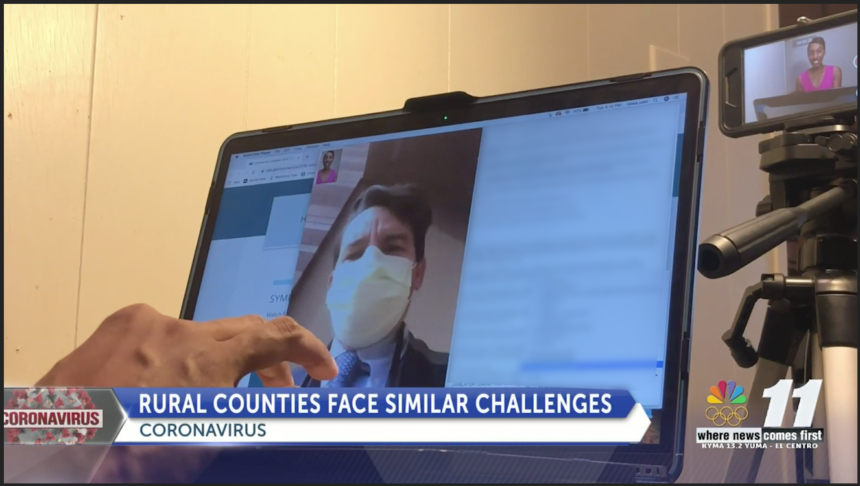Confronting COVID-19: A message from one rural health care system to another

Dr. Gregory Jarrin, MD from Winslow, AZ discusses how Navajo County is managing a COVID-19 outbreak
YUMA, Ariz. (KYMA, KECY) - As of Wednesday morning, Yuma County has confirmed less than 15 cases of coronavirus.
For a community with many similarities to Yuma, unfortunately, Navajo County has confirmed 102 cases of COVID19.
Dr. Gregory Jarrin, MD is a general surgeon at Winslow Indian Health Care Center, where four patients have died from the virus.
Wearing a face mask every single day has become the new norm over the past month.
“It’s very concerning. Being a physician, going to work every day, we’re all at higher risk,” Dr. Jarrin said.
The general surgeon doesn’t recall health care workers being this concerned about being exposed to a virus since the AIDS epidemic of the 1980s.
He said, “It was clear that everybody died of AIDS then. The parallel with [COVID19], however, is that this pandemic has totally overwhelmed the [health care] system.”
Time is valuable amidst this virus.
Big cities, like New York, are overwhelmed with cases and undersupplied, as rural communities prepare for the worst.
“A small hospital can get overwhelmed pretty quickly,” said Dr. Jarrin
News 11 asked if a rural, like Yuma, were to get hit hard by the outbreak, how does he foresee Yuma navigating it with just one hospital in our county?
His answer, “There needs to be some sort of local trust. At least what [Winslow] is relying on are our local health care providers. I think in Yuma you could potentially do the same.”
Similar to Yuma County, Navajo County is also home to an Indian reservation; the Navajo Nation.
The recent stimulus bill set aside a billion dollars for the Indian Health Service to respond to coronavirus.
This is expected to slightly lighten the load for local hospitals, like Yuma Regional Medical Center, which also cares for our native community.
“That money is most likely going to be channeled through the Indian Health Service in order to get to our patients and help us take care of our patients."
"The sooner it gets down to the health care facilities that need it the better off we’re all going to be,” Dr. Jarrin explained.
Above anything, the overarching message from health care professionals and the government is to stay at home.
This to avoid overcrowding the hospitals, and hopefully, save space for those facing severe symptoms such as shortness of breath.
